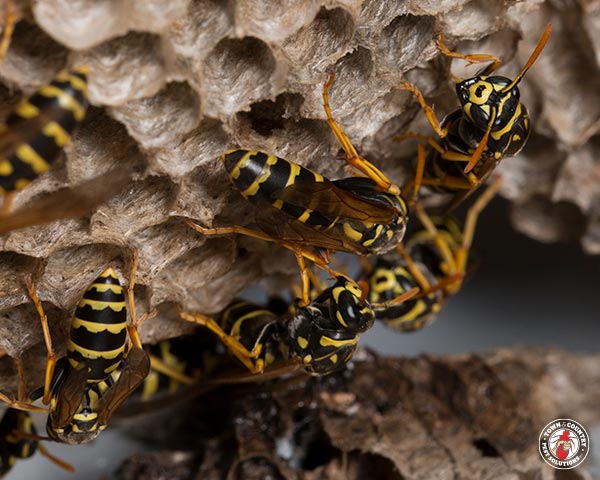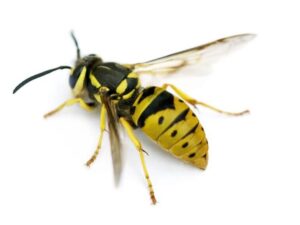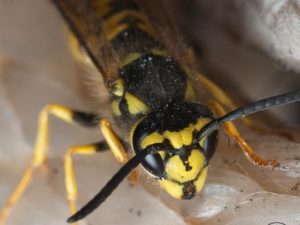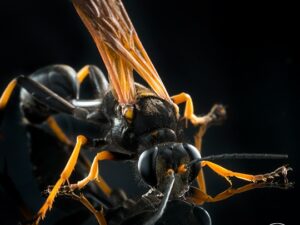
Wasps are pesky insects that can be found in almost any part of the world. They are not only annoying, but can also pose a danger to people who are allergic to their stings. If you have noticed an increase in wasp activity around your home, it’s important to understand what might be attracting them. In this article, we will explore the various factors that attract wasps to your home and what you can do to prevent them from making a home in your yard.
Understanding Wasps
Wasps are flying insects that belong to the Hymenoptera order, which also includes bees and ants. There are many different species of wasps, but the most common ones that are attracted to homes are paper wasps, yellow jackets, and hornets. Wasps are generally social insects and live in colonies with a queen, workers, and drones. They build nests out of paper, which they make by chewing up wood and mixing it with saliva. Wasps are attracted to a variety of factors that make your home an attractive place to build their nests.
Factors That Attract Wasps to Your Home
Food Sources
One of the main things that attract wasps to your home is food. Wasps are omnivores and will eat a variety of things, including insects, nectar, and fruit. They are particularly attracted to sweet and sugary foods, which is why you may see them buzzing around your soda can or fruit bowl. If you leave out food or drinks, wasps will be attracted to the scent and may come to investigate.
Water Sources
In addition to food, wasps also need water to survive. They are attracted to sources of standing water, such as puddles, bird baths, and swimming pools. If you have standing water in your yard, it’s important to remove it to discourage wasps from congregating.
Shelter and Nests
Wasps are also attracted to areas where they can build their nests. They prefer sheltered areas that are protected from the wind and rain, such as eaves, attics, and sheds. If you have an area in your yard that is protected and out of the way, wasps may choose to build their nest there.
Bright Colors and Floral Scents
Wasps are also attracted to bright colors and floral scents. If you have brightly colored clothing or flowers in your yard, wasps may be attracted to the colors and scents.
Climate and Temperature
Finally, wasps are attracted to areas that have a warm and temperate climate. If you live in an area with hot summers, you may notice an increase in wasp activity during the summer months.
Prevention Methods for Keeping Wasps Away
If you want to keep wasps away from your home, there are several things you can do to make your yard less attractive to them.
Removing Food Sources
One of the easiest things you can do is to remove any food sources that may be attracting wasps. This means keeping your food and drinks inside, covering your garbage andcompost bins, and cleaning up any spills or crumbs that may attract them.
Eliminating Water Sources
You can also eliminate standing water sources by fixing leaky pipes and drains, and regularly emptying and cleaning bird baths and swimming pools.
Removing Shelters and Nests
Removing any existing wasp nests in your yard is also important to discourage new colonies from forming. If you find a wasp nest, it’s important to hire a professional to remove it, as wasps can become aggressive if they feel threatened.
Choosing the Right Landscaping
Choosing the right landscaping can also make a difference in deterring wasps. Avoid planting brightly colored flowers or fruits, and instead opt for plants with muted colors or non-flowering varieties. Additionally, keep your landscaping well-maintained and trimmed to avoid creating areas where wasps can build their nests.
Covering Garbage and Compost Bins
Covering your garbage and compost bins is another way to keep wasps away from your home. Make sure the lids are securely in place and that there are no holes or gaps for wasps to enter.
Keeping Doors and Windows Closed
Finally, keeping doors and windows closed can prevent wasps from entering your home. Use screens on your windows and doors to allow fresh air in while keeping wasps out.
What to Do if You Have a Wasp Infestation
If you already have a wasp infestation in your home or yard, it’s important to seek professional help to remove it. Attempting to remove a wasp nest on your own can be dangerous and may lead to stings or even anaphylactic shock if you are allergic.
In conclusion, wasps can be attracted to a variety of factors that make your home an attractive place to build their nests. By removing food and water sources, eliminating shelters and nests, choosing the right landscaping, covering garbage and compost bins, and keeping doors and windows closed, you can prevent wasps from becoming a problem in your home or yard.
FAQs
- Are wasps attracted to specific colors?
- Yes, wasps are attracted to bright colors and floral scents.
- Can I remove a wasp nest on my own?
- It is not recommended to remove a wasp nest on your own as it can be dangerous and lead to stings or anaphylactic shock.
- What should I do if I am stung by a wasp?
- Wash the sting site with soap and water, apply a cold compress, and take an over-the-counter pain reliever.
- Are all species of wasps dangerous?
- No, not all species of wasps are dangerous. However, it’s important to avoid disturbing any wasp nests as they can become aggressive and sting in defense.
- How can I prevent wasps from entering my home?
- Keep doors and windows closed, use screens on windows and doors, and seal any gaps or holes where wasps can enter.












